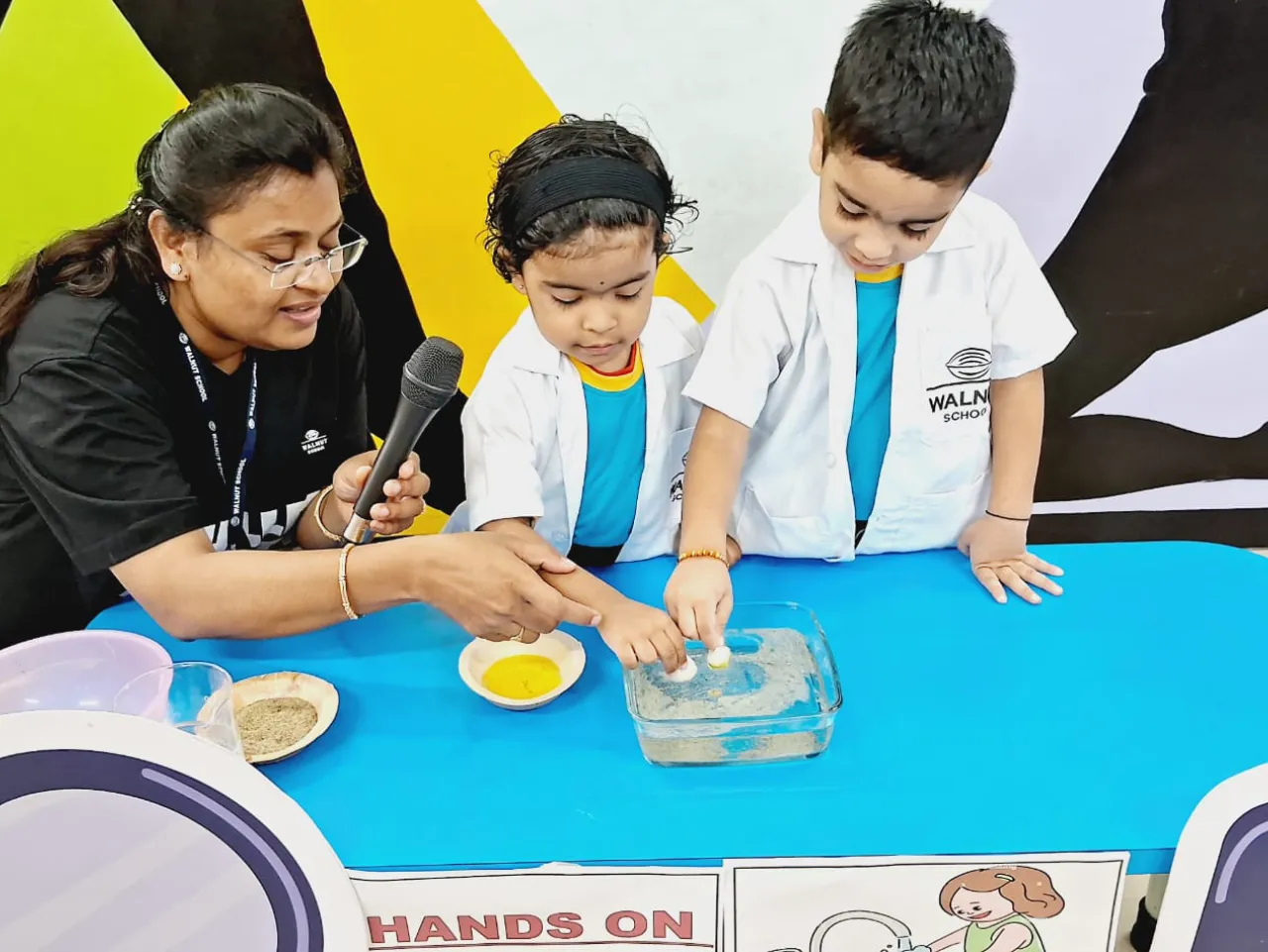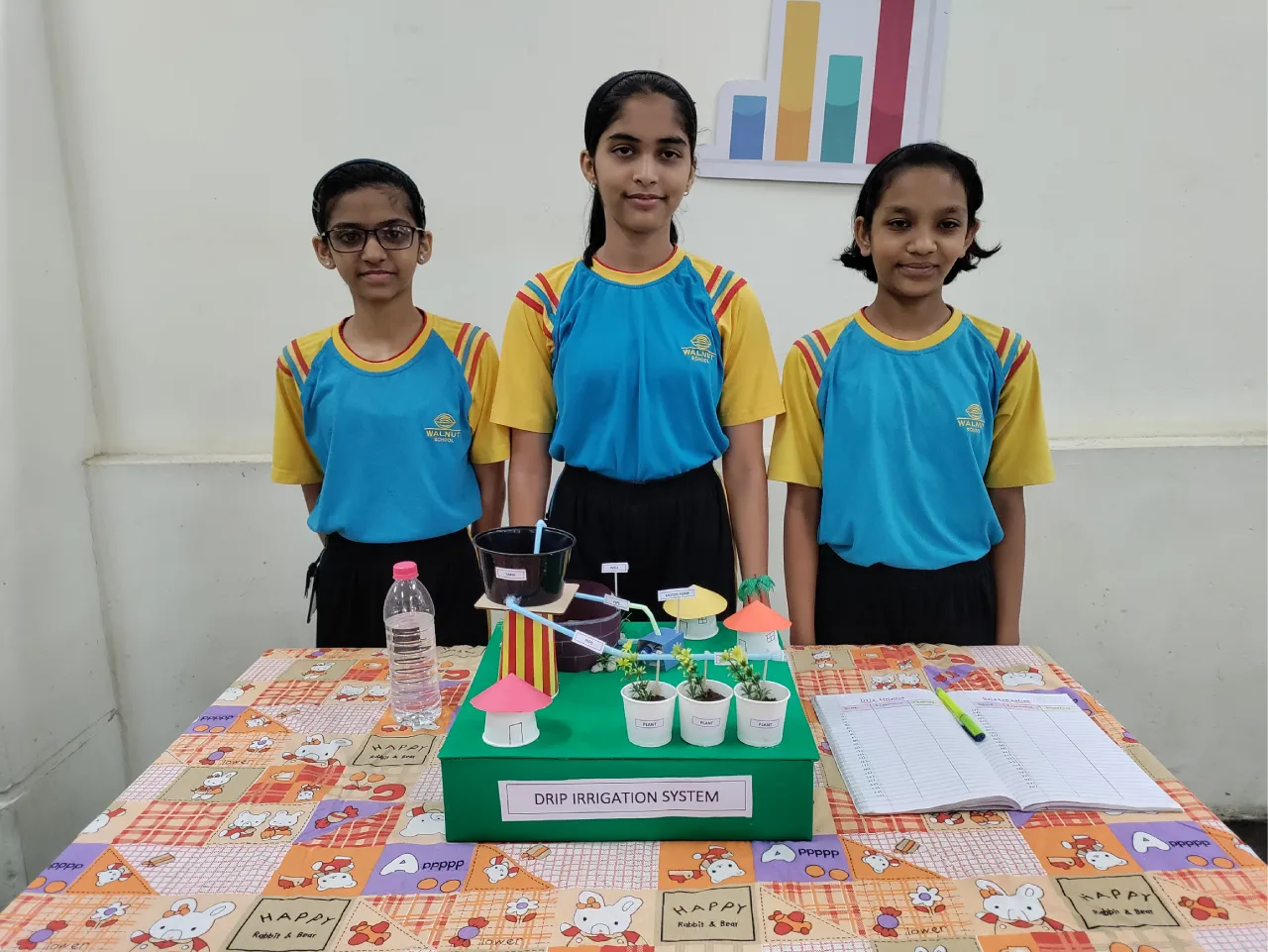Science approach

Science starts from Nursery
In Walnut, Science starts from Nursery itself with simplified concepts from Physics, Chemistry and Biology in equal measure. Exposure to science from such a young age gives the students more reading material and it helps to increase their understanding and vocabulary as well.
Students in higher classes also get some kits from school for additional readings for simpler experiments at home. There are revision periods after every lesson and a short multiple choice test too, which we call Test Bytes. When the Std. 10 curriculum starts, there are also short descriptive tests after each lesson, which we call Try-a-Test. All this keeps students in the habit of regular studying and reduces exam stress!

Nursery, Jr KG, Sr KG
The students have one class each of LEARN on a daily basis. This is where they learn concepts in science and get introduced to the related vocabulary. They also have a HANDS ON class once a week. Here, they do different science experiments related to the lessons they are learning in their theory classes. They also showcase this to their parents in a STEM demonstration.
In addition to the regular science theory classes, these activities support the subject too.
SCIENCE LAB : Once a week. Trying out experiments to check the concepts that they learn in theory
INFORMATION TRANSFER : Once a week. Techniques of going through large chunks of information and taking notes and making mind maps.
STEM demonstration : Std 1 to 4 – once a year. A presentation to parents.
STEM A-FAIR : Std 5 to 10 – once a year. A science project competition with a presentation to a large crowd of parents and students.